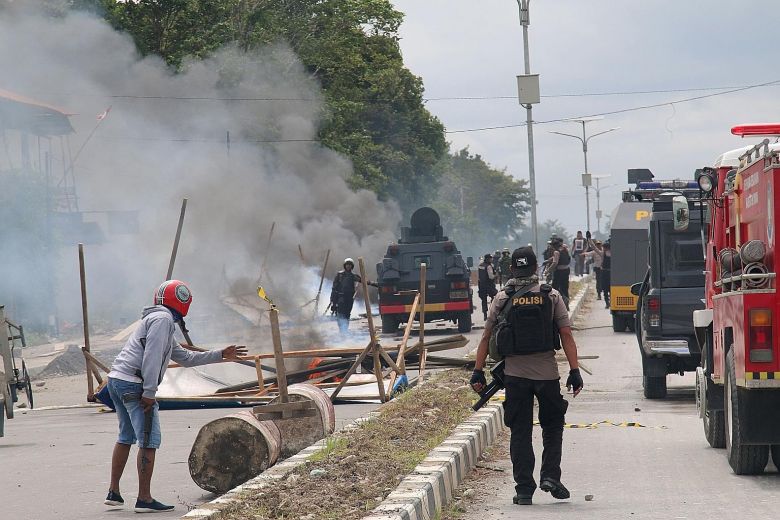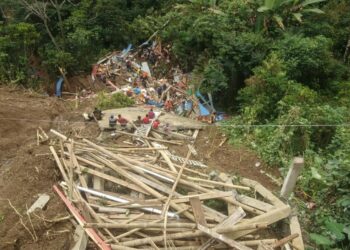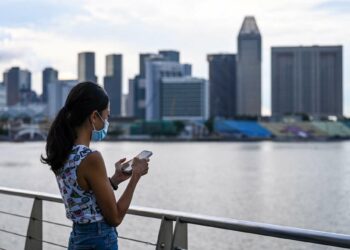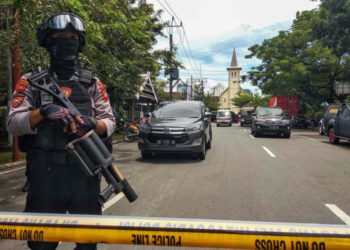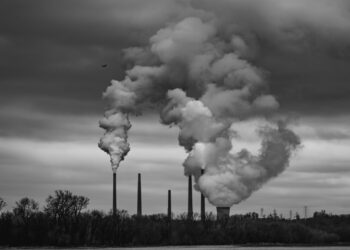Tensions are high in Indonesia as the pro-independence movement in West Papua continues to gain traction and international attention.
In an effort to quell unrest and win the trust of the West Papuan people, the Jokowi led government has opted for a “prosperity approach.”
This approach, however, is expected to backfire.
According to an Amnesty International report released in 2018, 29 of the 69 documented instances of suspected unlawful killings by security forces in Papua between January 2010 and February 2018, were targeted at pro-independence demonstrators within the province.
The recent upsurge in violence marks a watershed moment in the Free West Papua movement that began in 1965.
In response to questions about the responsibility of the state in quelling unrest in the province, President Joko “Jokowi” Widodo reiterated his commitment to a “dialogue and prosperity” centered around infrastructure development.
The president, who saw overwhelming electoral wins in West Papua in this year’s presidential elections, said his approach has been focused on infrastructure development and improving the quality of human resources in the Easternmost province of the country.
But West Papuan activists point to its failures and the state-sponsored crackdown on civil society.
West Papua is currently in the midst of an internet blackout and major restrictions on international travel.
In a recent report, the Nduga Solidarity Civil Society Coalition confirmed the deaths of 182 people who were fleeing violence in the Nduga regency between December of 2018 and July. They allegedly died from famine and other diseases brought upon by the conflict between armed insurgents linked with the Free Papua Movement and security forces.
‘Listen to the Papuan Voices’
According to Dr. James Elimslie, founding co-convener of the West Papua Project at the Center for Peace and Conflict Studies at the University of Sydney, the movement for West Papuan independence has become more violent and more organized than ever before.
This is largely thanks to the efforts of the international Papuan diaspora, international attention, and the advent of the internet and other forms of communication. Special autonomy funds and a large population of Papuan civil servants have provided the financial and organizational means for the movement to increase in size and power.
“The Papuans, including now the second and third generation of independence advocates, are becoming better educated and informed and are still very committed to their goals,” Elimslie told The Globe Post.
They also seem to be more confident of success than in the past, even though the power of the Indonesian state appears overwhelming, including to most international observers.”
The efforts of the Indonesian state to actualize its prosperity approach, however, have been met with significant resistance from the local Papuan population.
“I think that Jokowi and [the government] are saying that with economic development and improved living standards, calls for independence will fade and the construction of the trans-Papuan highway (by TNI) will help this. But the opposite is true,” Elmslie said.
“The Papuans in the highlands don’t want the road and are fighting against it – it will only bring more soldiers, more settlers, more logging companies, more miners and hasten their destruction. People should listen to the Papuan voices and stop the road.”
Armed Resistance
The independence movement, known generically as the Free Papua Organization (OPM) can be best understood as having three separate mechanisms:
The first, and perhaps the most elusive, being the armed units scattered throughout the island with limited territorial control. Unlike the other two, the armed factions of the movement are predominantly active within West Papua and have little presence in Papua New Guinea.
These factions are strife with in-fighting, ethnic factionalism, personal animosity and most importantly, a lack of consensus on a common leader.
The de-centralization limits their influence to certain sections of West Papua. For instance, provinces like Papua Barat and South Papua have seen no instances of armed conflict.
The factions vary in size and form but all use a variation of the National Liberation Army (TPN or TPN/OPM) in their name. Given their small numbers and limited influence, their efforts have largely been violently suppressed by the Indonesian state.
Drawing Attention
The second and most active faction of the movement is the political movement. The political factions had limited success in coordinating with the armed factions, so they employed different tactics.
For instance, the largest and most radical of the factions called West Papua National Committee (KNPB) have learned and observed from the actions of the Indonesian state in East Timor.
The strategy of these groups is to instigate violence in hopes of provoking a disproportionate response from the state. The idea is to garner attention from the international community to the violence in the hope of intervention. Any violent action by the Indonesian state therefore directly plays into the hands of groups like KNPB.
The third faction is a conglomerate of organizations consisting predominantly of West Papuan diaspora living abroad that work to bring attention to the crimes of the state. The movement primarily consist of members who were previously aligned with the other two factions or second and third generation Papuans who are working from the outside to bring about change.
State-Backed Extremists
Papuan activists also have to contend with government-linked, anti-Papuan, hardline Ismalimist organizations that operate in the territory.
On October 6 2019, Front Jihad Islam (FJI), issued a call to arms in Indonesian governed Papua after many non-Papuan settlers were amongst the victims of the recent violence in the region.
The call to arms comes after widespread demonstrations by West Papuans against racism, which also fueled renewed calls for a second independence referendum.
FJI and the Islamic Defenders Front are religious-based pressure groups that operate throughout Indonesia. Both vigilante groups have played a key role in political discourse in Indonesia, promoting anti-vice and anti -apostasy messages.
For some within West Papua, these calls for Jihad and violence against the native Papuans is neither new nor something to be taken lightly.
“We know what the Indonesian military did in East-Timor and that they used Jihad militia for the government’s agenda,” said Raki Ap, spokesperson for the Free West Papua campaign and a New Guinea expert at the Dutch Ministry of the Interior.
“The same is happening now in West Papua. It is clear what Indonesia is doing. Intimidating and killing, so the Freedom Movement will stop. [The Indonesian military] did it in the past and history is repeating,” he continued.
These comments are in reference to reports that the Indonesian military played an active role in arming and supporting hardline Islamic militant groups like the FJI or the Islamic Defenders Front to serve their own interests, including destabilizing the pro-independence movement in East Timor.
The Jihadi groups have allegedly had strong ties with key figures within the Indonesia Government such as former president Sukarno, who used them to eliminate communists and dissidents.
“Open West Papua for foreign media and journalists, allow NGOs and diplomats to West Papua, and reopen the internet. They are very afraid the truth will come out, but they are losing the battle,” Raki added.
According to Elmslie, the fight against Islamic fundamentalism is seen in West Papua as a “horizontal conflict” as opposed to the state and military which constitute a “vertical conflict.” He defines horizontal conflicts as those arising between similar groups or organizations that are trying to gain influence in the region. In contrast, a vertical conflict arises between dissimilar groups that have an unequal distribution of power amongst them.
“Churches particularly have worked hard to try and maintain good relations between the faiths. But there seems to be quite a deep social gulf between settlers and Papuans, even within the Christian churches. I think the role of FJI at the moment is more a potential threat rather than an actual threat, but it is still real.” he said.
“These threats should be taken seriously. This is the first time … where large numbers of Indonesian settlers were killed. It has changed the nature of the conflict and its unclear where it’s heading.”
More on the Subject
Indonesia Rights Commission Calls for Probe into Papua Deaths


